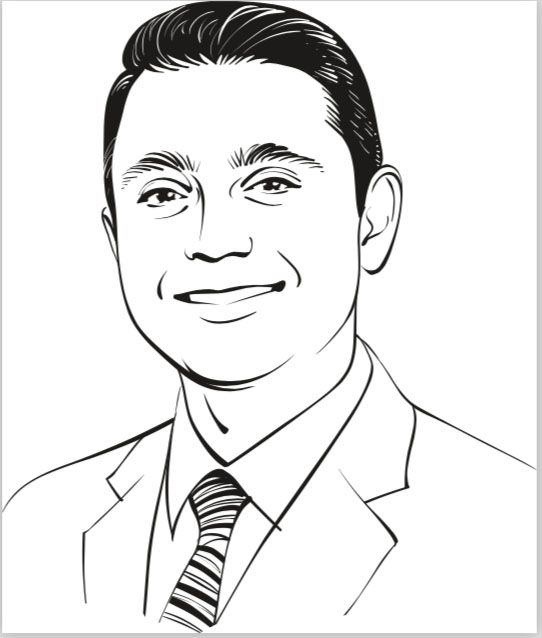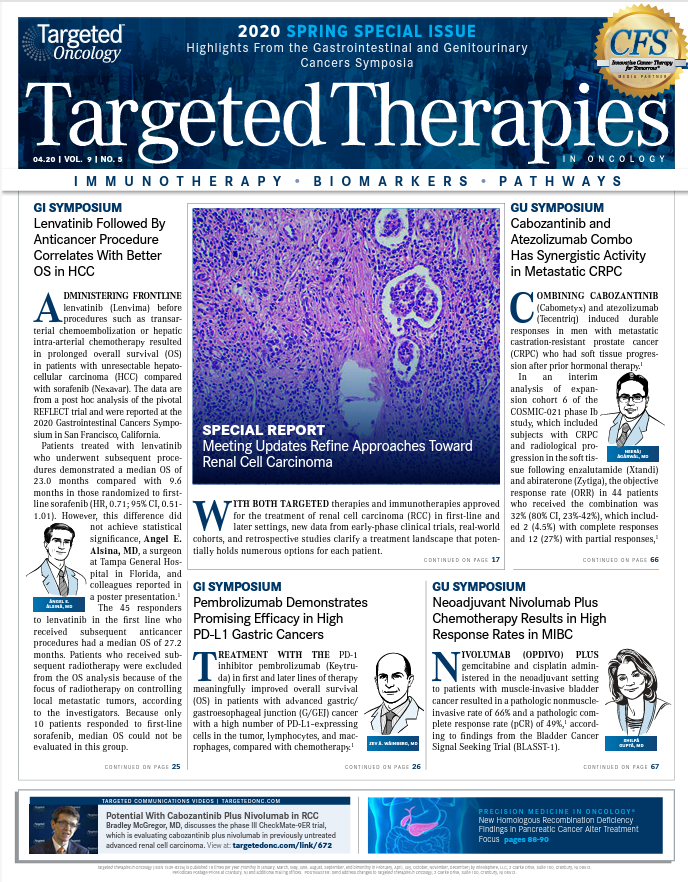Even as Oncology Care Advances, Novel Coronavirus Threatens Our Most Vulnerable Patients
The Date is March 11, 2020, and fresh off the heels of the Genitourinary Cancers Symposium, I am supposed to be writing about all the exciting research presented and the hope that lies ahead for novel treatments and approaches for urologic cancers.
Arjun V. Balar, MD

Arjun V. Balar, MD
The date is March 11, 2020, and fresh off the heels of the Genitourinary Cancers Symposium, I am supposed to be writing about all the exciting research presented and the hope that lies ahead for novel treatments and approaches for urologic cancers. Progress in metastatic bladder cancer is poised to take a giant leap forward, with updated data presented from EV-103 demonstrating improved response rates and durability of responses for first-line enfortumab vedotin (Padcev) plus pembrolizumab (Keytruda). The data supported the launch of EV-302, a phase III study that aims to challenge all exist-ing first-line treatments in metastatic bladder cancer.
Instead, the only thing on my mind is that the health of our most vulnerable and frail across the world is being actively threatened by an unseen and highly communicable deadly pathogen and our way of life, something I admittedly took for granted no more than 4 weeks ago, has completely changed, likely for a long time.
As a physician who cares for the same vulnerable and frail patients, time feels as though it is moving at 2 speeds simultaneously: at warp speed, with every day presenting a new and unimaginable challenge, and at a frustratingly slow pace, as we face these challenges in seeming isolation because the most effective way to combat this disease is by practicing “social distancing.” In times of crisis, we naturally want to come together, which is the very thing we must not do.
Priorities in patient care have changed. The definition of an “urgent” visit is simply not the same as before, and we have had to develop contingency plans for worst-case scenarios. And yet tomorrow may bring a different situation.
This editorial serves as a time capsule of sortsby the time it is published, I fear that we will be experiencing the worst and yet I hope for the best. I fear that medical experts’ message to socially distance and protect the most susceptible will not be broadly or sufficiently accepted because the American way of life, rooted in rugged individualism, runs counter to everything we need to do to fight this disease. I am also afraid that our healthcare system will be overrun with patients in desperate need of care, and our brave colleagues on the frontlines of hospital wards and intensive care units will be forced to make painful decisions; some will likely succumb in the process, much like our colleagues in Italy are experiencing.

Survivorship Care Promotes Evidence-Based Approaches for Quality of Life and Beyond
March 21st 2025Frank J. Penedo, PhD, explains the challenges of survivorship care for patients with cancer and how he implements programs to support patients’ emotional, physical, and practical needs.
Read More
Survivorship Care Promotes Evidence-Based Approaches for Quality of Life and Beyond
March 21st 2025Frank J. Penedo, PhD, explains the challenges of survivorship care for patients with cancer and how he implements programs to support patients’ emotional, physical, and practical needs.
Read More
2 Commerce Drive
Cranbury, NJ 08512
All rights reserved.